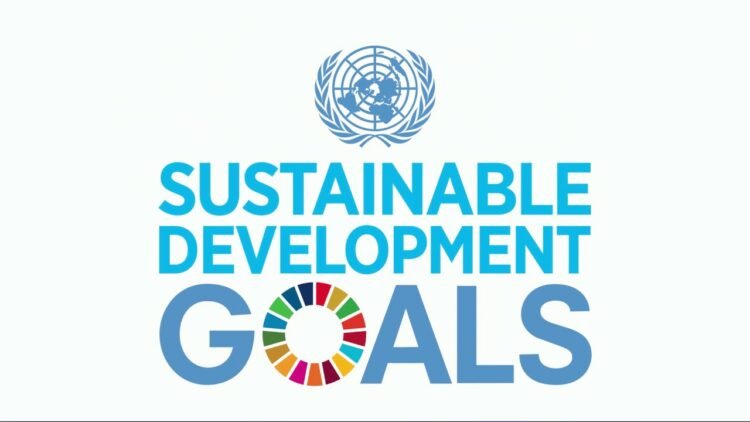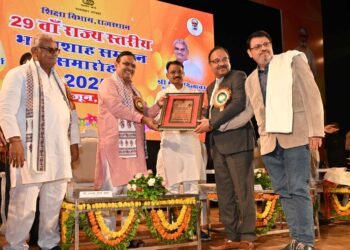MUMBAI: At a virtual event with NITI Aayog Advisor, Sanyukta Samaddar, UNDP India Deputy Resident Representative, Dennis Curry, and a group of UK businesses with deep investments in India, the UK-India Business Council (UKIBC) released its Socio-Economic Impact Casebook 2022. The casebook, which features 6 case studies, highlights the positive contribution that UK businesses are having in India towards the achievement of the Sustainable Development Goals.
The casebook’s release follows an earlier event at the British High Commission in New Delhi in November 2021 in which businesses met with Amitabh Kant, CEO NITI Aayog, and Alex Ellis, British High Commissioner to India, to discuss the role that business play towards sustainable development in India, including highlighting the role that trade and investment can play for international cooperation and collaboration to such goals.
Among the case studies featured, Diageo, through a business and hospitality skills programme, is training 925 youths in FY22, of which 54% are women and people with special abilities, in the hospitality sector and supporting subsequent access to jobs with respected hotels at a decent salary. The programme targets the disadvantaged and vulnerable section of the society in particular by giving them a sustainable livelihood opportunity through skills and employment support.
At the same time, Pernod Ricard’s Mobile Healthcare programme is situated around the need to address accessibility to universal health coverage for the rural poor in India. Project Sanjeevani operates 15 Mobile Health Vans (MHVs) across more than 200 villages in 9 states. The programme provides free door-step preventive healthcare and diagnostic services, with a particular focus on vulnerable groups, such as fungal infections, flu, joint and serious ailments.
Finally, BSI Group (BSI), which produces globally recognised British Standards under a Royal Charter- has sought to create a framework on well-being for organisations to follow, through its Prioritising People Model©, which maps out best practice in creating a culture of trust and the right conditions for individual fulfilment (well-being) and organisational resilience. BSI’s earlier pioneering Safe Working Guidance, first published in May 2020 in response to the urgent need to keep workers safe from COVID-19, led to the creation of ISO/ PAS 45005 as an international resource for well-being and health and safety in the workplace.
UKIBC Executive Chair, Richard Heald said: “We are delighted to continue this important conversation on sustainable development in India with stakeholders across Government, industry, and UNDP. Businesses and investors are actively contributing towards the achievement of the sustainable development goals in India. The UK and India bilateral relationship is strong and sustainability under the new Comprehensive Strategic Partnership, including the FTA currently under negotiation, is very much to the fore. We are really pleased to support businesses and investors working in the economic corridor in playing their significant part, deeply invested in the economy, and widely impacting across society.”
Ms Sanyukta Samaddar, Advisor, Niti Aayog expressed her “Excitement on engaging with the UK industry and reinvigorate partnerships in sustainable development, which is deepening as the UK-India are positively progressing on the Free Trade Agreement Negotiations. While addressing the webinar, she accentuated the role of private sector investments as crucial for galvanising India’s SDG agenda at central, state and district level. She also highlighted India’s strategic move from CSR to ESG and invited collaboration, co-creation, technology, and innovations across sectors such as water, agriculture, electric mobility, clean energy, start-ups and women empowerment programmes which would support enable a momentum and support in upscaling India’s SDG agenda.”
Ms Dennis Curry, Deputy Resident Representative, UNDP stressed “On collaborative partnerships in technology across areas such as clean energy, green hydrogen, electric vehicles, disaster management, education, healthcare as critical for India to achieve its SDG agenda as well as provide the pace to the 2030 net zero agenda. He shared that India has the capacity to generate 400,000 new jobs through sustainability and has an investment potential of approximately USD 2.6 trillion in sustainable development by 2030.”
The UKIBC’s Socio-Economic Impact Campaign aims to support businesses’ contribution towards the sustainable development goals in India and the UK. With more than 570 UK companies working in India, and the acknowledged notion that business has a societal role to play, investment is helping to engender prosperity in education, healthcare, gender equality, and energy, as well as creating jobs and economic growth.






















